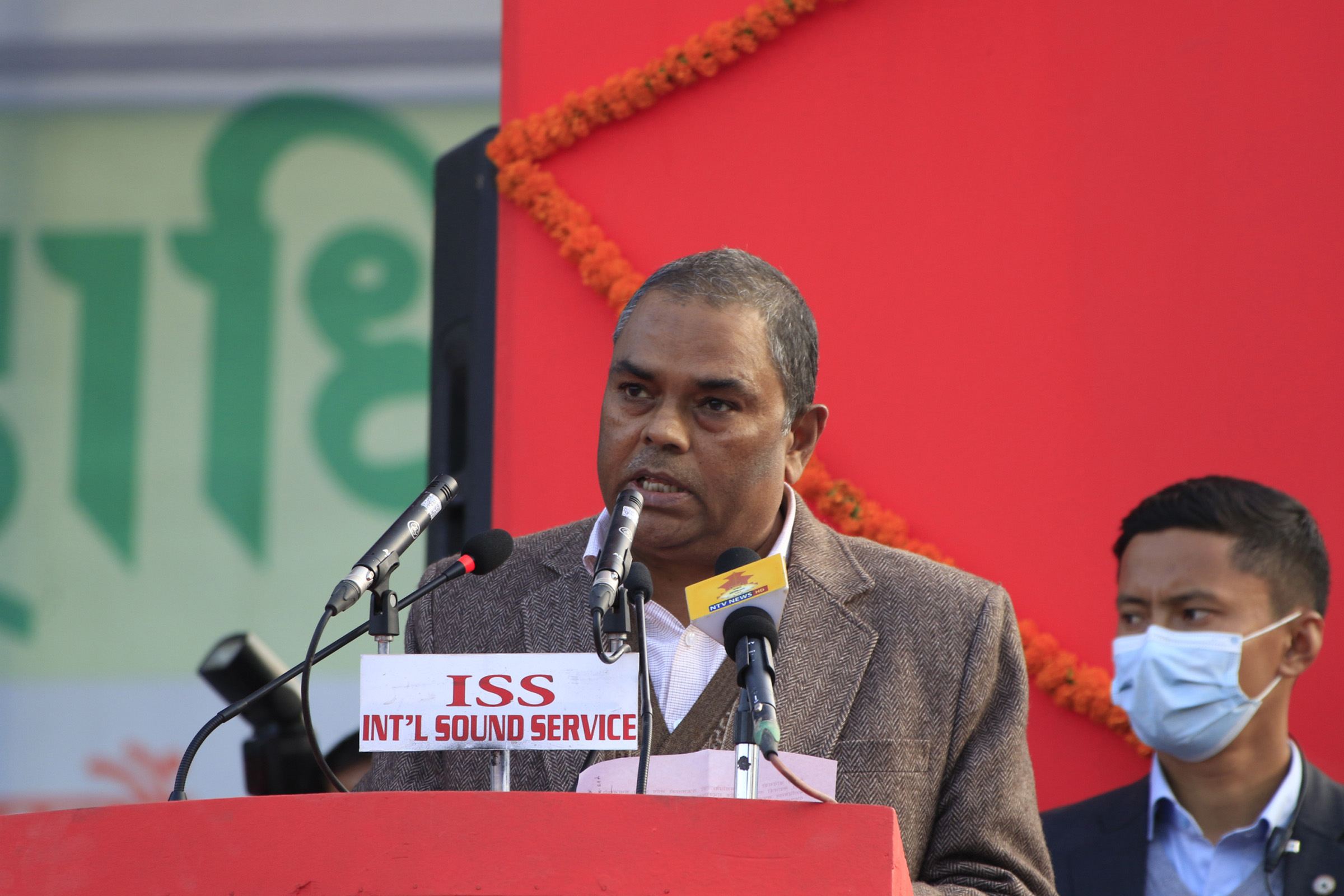

Upendra Yadav, Nepali leader in Madhes province has lost in the recent elections in the country.
Kathmandu: The electoral defeat of Upendra Yadav, one of the most prominent leaders of Nepal’s Madhes region, has grabbed wide attention in the country.
He contested polls from Saptari-2 election constituency which borders India’s Bihar state.
Yadav, who made his mark in regional and national politics after spearheading the 2008 Madhes movement, was defeated by CK Raut, chairman of the newly-formed Janamat Party.
Raut, who ran a separatist movement with a demand to split Terai-Madhes region from Nepal, gave up his campaign and joined mainstream politics in March, 2019.
The defeat of Yadav, a former deputy prime minister and foreign minister, comes as a serious setback to his political career.
Yadav’s charm in Madhes sharply declined in the last five years as he got mired in the quagmire of power politics in Kathmandu, while deviating from his core original agenda that he championed for the past over a decade, according to observers.
In previous elections, Yadav lured voters claiming he would make ground for amending the constitution to meet their demands. But when he came to power, he failed to live up to his promises—he could not lobby for creating a situation for the constitutional amendment. Rather, he got mired in the quagmire of power politics. Because of his failure to vocally advocate the Madhes agenda, Sitaram Baral, a Kathmandu-based political analyst, told India Narrative.
According to Baral, Yadav’s alliance with the opposition CPN (UML) was opportunistic. The UML is a centrist and anti-federalist force while Yadav’s party champions federalism. Hence their alliance was based on electoral calculations rather than ideology. This didn’t benefit Yadav’s party at all, he added.
The caste factor didn’t work for Upendra Yadav either. Traditionally, caste-based voting is also one of the major factors for Madhes-centric leaders to win elections. In the recently-held elections, Yadav seems to have failed to play that card, according to another political observer. The election result of Yadav’s constituency suggests that caste-based politics does not always pay in Madhesh. Candidates’ popularity and emotional connections have come to matter more, Sohan Shah, another political analyst, has been quoted by Kathmandu Post newspaper as saying.
Nepal’s Madhes Province borders India and shares close socio-cultural affinity with the neighbouring country. There are eight districts in the province, with 32 federal parliamentary seats. There are 107 seats in the provincial assembly headquartered in Janakpur.
The Nepali Congress has been the most influential political force in the Terai-Madhes region even after the emergence of regional parties on account of a massive Madhes uprising in 2008.
Since then, Madhes-centric parties remained the dominant political force in Madhes. These regional parties also played a vital role in the formation and dissolution of successive governments in the Centre.
Madhes in quest for drastic change
The CK Raut-led Janamat Party has made a strong foray in Madhes through the recent elections. Observers believe that the rise of a new party in Madhes reflects people’s aspirations for changing the old guard.
Madhesi people voted for new parties like Janamat Party because they are aspiring for change. As established Madhes-centric parties failed to live up to their expectations, they sought an alternative.
The rise of Janamat Party should be understood in this light.
Janata Samajbadi Party (JSP) and the Loktantrik Samajbadi Party (LSP) have secured five seats and four seats in the House of Representatives, the lower house of federal parliament while faring poorly in the provincial assembly too.
The newly-formed Janamat Party ked by CK Raut has won at least one seat in federal parliament and six seats in the provincial assembly.
(Santosh Ghimire is the Nepal correspondent of India Narrative based in Kathmandu)
External Affairs Minister S Jaishankar shared his remarks on how India and Germany can upgrade…
Germany has come out resolutely behind India and its fight against terrorism under Operation Sindoor.…
Baloch leader Mehran Marri has accused Pakistan of unlawfully occupying Balochistan since 1948, transforming the…
The Trump administration announced on Wednesday that it will continue its efforts to prevent advanced…
External Affairs Minister S Jaishankar met with German Chancellor Friedrich Merz in Berlin on Friday…
The Central Tibetan Administration (CTA) launched a Month-long Panchen Lama Awareness Program aimed at educating…